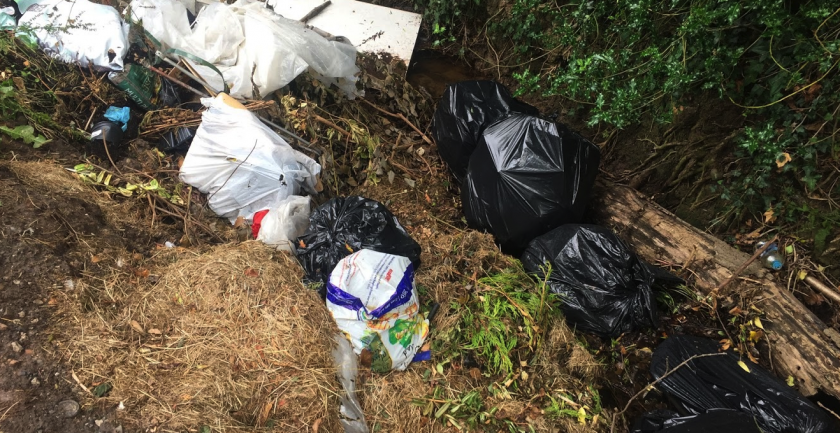Fly-tipping incidents in Flintshire rise by 55% on previous year

Latest figures from the Welsh government show that fly-tipping increased by 55% in Flintshire in the last year.
The annual change in the number of fly-tipping incidents from April 2020 to March 2021 is varied across Wales.
Six local authorities reported a decrease and 16 local authorities reported an increase.
The largest annual increases were in Wrexham at 154%, Denbighshire 78%, Conwy 63% and Flintshire at 55%.
“This was partly due to improved reporting mechanisms in Wrexham and Conwy and the challenges presented by the COVID-19 restrictions in Denbighshire and Flintshire.” The Welsh government said.
Fly-tipping clearance in Flintshire was estimated to cost nearly £137,000 last year, up from, £87,000 in 2019, according to the latest data.
A total of 840 enforcement actions were taken in Flintshire between April 2020 to March 2021, the highest number since 2012 and nearly 100% up on 2019.
Of the 840 enforcement actions taking place in the county, seven resulted in prosecution, one warning letter was handed out and 13 fixed penalty notices were issued.
Across Wales, over 25,000 enforcement actions were taken; the lowest number of enforcement actions to be taken since 2015-16.
Flintshire Council is in the process of employing new enforcement officers to clamp down on a range of problems from fly-tipping to side waste, dog fouling issues and illegal parking.
Flintshire’s Chief Officer for Streetscene and Transportation, Katie Wilby, said:
“We have seen an increase in the number of reported fly tipping cases since the start of the pandemic.”
“In June 2021 a report was presented to the Council’s Environment and Economy Overview and Scrutiny Committee outlining the number of reported incidents in comparison to previous years, the tonnage of waste collected as a result of those reports and what enforcement action had been taken.”
“Further information was also provided on the Council approach to tackle this increasing antisocial behaviour.”
Neil Harrison, Fly-tipping Action Wales Programme Manager, said: “While it is disappointing to see an increase in fly-tipping incidents, particularly after a sustained year-on-year decrease over the last few years, we must not forget that waste enforcement officers across the country have been under extreme pressure amidst the coronavirus pandemic and many of these key workers were temporarily re-deployed to deal with the local authorities’ response to coronavirus.”
“The pandemic has also placed additional pressures on waste services, with more people carrying out renovations and moving home at a time when household waste recycling centres were unavailable or had additional restrictions in place during the pandemic.”
“Like all other sectors, teams were working with depleted numbers, yet the fact that they were still able to deliver over 25,047 enforcement actions is testament to the hard work and commitment of our local authorities that continued to tackle environmental crime on the ground during a very challenging time.”
“Unfortunately, around two thirds of fly-tipping incidents still contain household waste, which is why I’d like to remind householders to protect themselves by always checking with Natural Resources Wales that the person they use to remove any excess rubbish from their home is a registered waste carrier.”
“Otherwise, they risk a fine of up to £300 if their waste is found fly-tipped. Householders can also be fined up to £5,000 and end up with a criminal record if taken to court”.
Spotted something? Got a story? Email: [email protected]
Latest News
